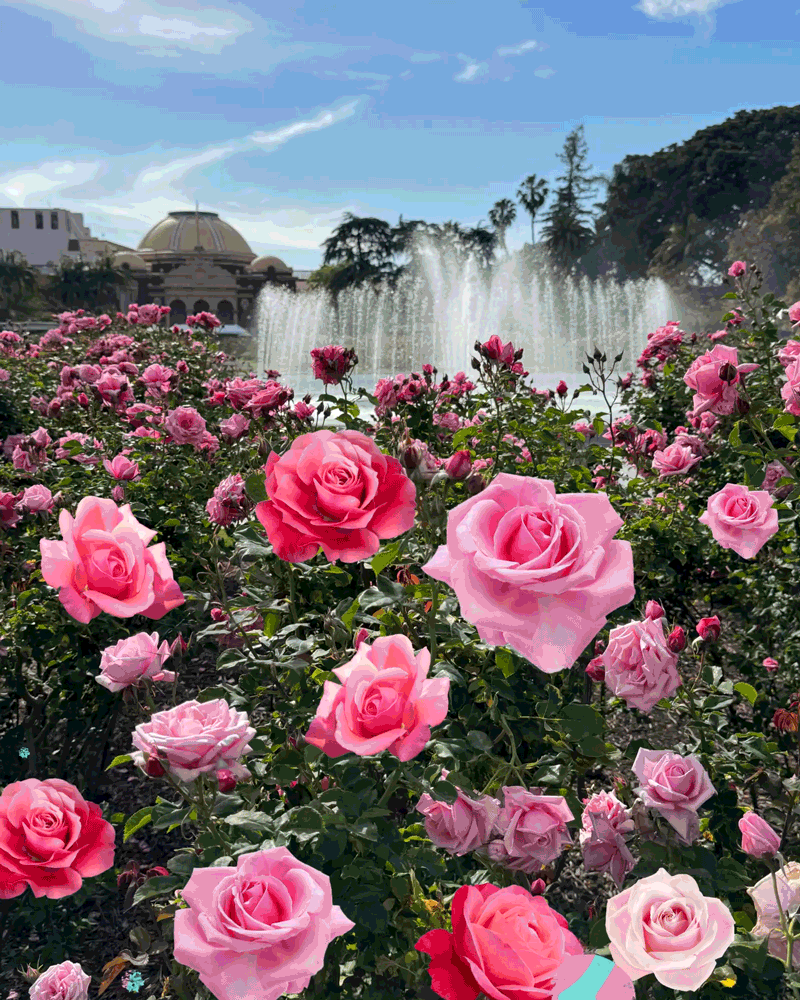International Business : Bulgarians Hope Withered Rose Oil Industry Can Bloom Anew : Agriculture: Crop’s severe drop-off is attributed to country’s trouble in switching to private enterprise and land ownership.
- Share via
KAZANLAK, Bulgaria — Breathtakingly pungent and astonishingly valuable, oil from Bulgarian roses has been a symbol of this Balkan nation for more than 300 years--a proud export from a Louisiana-size country that otherwise attracts little notice in international trade.
But these days, the bloom is off the Bulgarian rose oil industry.
Some experts describe the situation as a catastrophe, one partly caused by confusion over land ownership since the collapse of communism here in 1989. Still, the Bulgarians--catching a whiff of possible Western investment and internal reform--hope for a revival of this exotic ingredient in perfumes, cosmetics and medicines.
“The last three or four years have been hard for us. Come back in three or four more years to discuss our achievements,” urged Rossen Georgiev, director of Bulgarska Rosa in Kazanlak, the state-owned factory that is Bulgaria’s largest distiller of the precious oil.
Critics say the troubles with rose attar symbolize why this country lags behind the Czech Republic, Hungary and Poland in the switch to a market economy.
The state monopoly in rose oil “led them down the wrong paths in marketing and position, and they made some really bad decisions,” said Michael McDowell, a Delaware-based consultant who is studying the Bulgarian fragrance industry.
The amount of land devoted to rose plants is now only about a quarter of what it was 10 years ago, officials report. Rose oil exports totaled about 700,000 kilograms last year, less than half the total sold in 1980.
Prices, meanwhile, suffered a similar decline, from $8,000 a kilogram to below $4,000 now, according to the Ministry of Agriculture, as demand softened and Turkish rose oil became a serious competitor.
Still, to protect against Mafia hijacks, armed guards accompany the rose oil during the two-hour trip west from Rose Valley factories to the Sofia laboratory for testing and blending.
And the national inventory--about 2 tons, estimated to be worth $8 million--is kept in bottles that fill a dingy basement vault in downtown Sofia, protected by two steel doors and other forms of security.
The oil, which looks like golden honey laced with beautiful crystal-like patterns, emits a sharp, seductive fragrance that blocks out Sofia’s winter stench of diesel and coal fumes. In a scene worthy of a 19th-century novel, workers pour the oil by hand and seal it in metal casks for shipping.
Kazanlak’s identity--even more than Pasadena’s--is tangled with roses. The city and neighboring Karolovo host colorful rose festivals during June harvests. Kazanlak is home both to the Museum of Roses and a national research institute for roses.
Before communism, the town had rose oil millionaires.
“I expect there will be rose millionaires again,” said Mayor Bancho Sarafov, whose city hall desk sports a crystal vase of red roses.
As he awaits such a revival, it is painful for him to see abandoned rose fields, dry and choked with weeds. With lessened financial support, the national research institute has suffered cutbacks in support for its mission to breed “juicier” flowers.
The Bulgarska Rosa factory avoided worse hardships because it diversified. Essences from lavender, peppermint and other plants are distilled there. More important is that it manufactures medicines, shampoos and cosmetics. Still, previous markets in the former Communist Bloc have shrunk and the factory now employs about 400, down 20% from when the Berlin Wall tumbled.
Central Bulgaria’s sandy soil and humid climate are ideal for growing roses. And an enormous number of flowers is needed: To produce only 1 kilogram of attar, 3 tons of blossoms must be steamed in two-story-high metal stills. The resulting dense oil is better than Turkish and Morrocan rivals, experts maintain.
“Bulgarian is the best in the world, absolutely. It has the best smell,” said Harry Lampe, corporate director for purchasing fragrance chemicals at International Flavors & Fragrances. New Jersey-based IFF is the single-largest buyer of rose oil worldwide, which it uses in perfume bases, Lampe said.
Land taken from private farmers during the 1950s collectivization is supposed to be restored to private ownership soon. But much restoration has been delayed, and other land has gone to owners who don’t have the money or skills to maintain the plants.
“Neither of the world wars managed to do the destruction to the production of rose oil as the economic and political changes today and the problems of land reform,” declared Raicho Tsvetkov, a well-known rose breeder who works at the Kazanlak factory.
Observers say land reform and foreign investment--an arm of RJR Nabisco, the tobacco and food giant, is among those said to be interested--are needed to revitalize the industry.
Several other Western European companies have expressed interest in buying parts of the rose oil factories or in signing contracts for large rose attar purchases, contended Daniela Bobeva, president of Bulgaria’s Foreign Investment Agency. Citing confidentiality, she declined to identify the firms.
However, she and others wonder whether the country’s sentimental attachment to rose oil will block foreign involvement. “The problem is whether the government wants to sell the family silver,” she said.
Factory director Georgiev says that as long as rose farms remain in Bulgarian ownership, his distillery will welcome Western partnerships.
“We won’t lose national pride if we take foreign investment,” he said. “We will always keep the name ‘Bulgarska Rosa.’ ”
More to Read
Sign up for Essential California
The most important California stories and recommendations in your inbox every morning.
You may occasionally receive promotional content from the Los Angeles Times.














